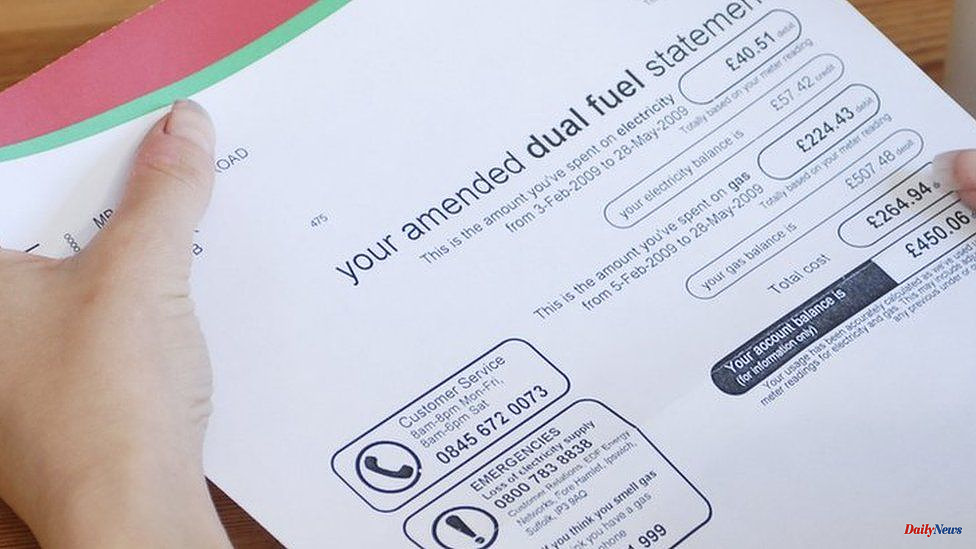According to the BBC, all types of household energy bills are now at or above PS3,000 per year.
This rise is 7% higher than the most recent cost of living support package announced by the government six weeks ago.
The government stated that they did not recognize these figures, but government and Ofgem kept a close eye on energy prices.
National Energy Action stated that there are "few indications of energy prices becoming more affordable this winter".
This grim prediction is made because households already struggle with rising fuel and food prices.
Every household in the UK will receive a PS400 energy bill discount this October. The lowest income households will also be eligible for a PS650 payment.
The uncertainty is heightened by the resignations from the Chancellor, and the health secretary, which draw ministers' attention away from any economic rescue plan and inward.
BBC has seen that the PS3,000 household bill is PS200 higher then what energy watchdog Ofgem had predicted in May.
In April, bills rose by an average PS700. Incomes were further squeezed by rising costs of living.
Ofgem will announce the official number for the energy price cap next month, but the time period it is being assessed is almost complete.
The price of gas for delivery this winter has risen sharply in recent weeks. The price per therm of gasoline has risen to PS4 in recent days, compared to an average of PS2.60 so far.
This was due to a drop in Russian gas export volumes, the closing of an important US gas export facility, and a lower value for the pound sterling.
The industry anticipates that these prices will remain stable for the remainder of the period, despite strike disruption to Norwegian gas supplies.
BBC has seen the figures using the same methodology as Ofgem.
This means that dual fuel users who pay by direct debit will face an average bill of PS3,018 each year.
A household that uses the same amount of energy, but pays by prepayment meter, would be charged PS3,048 annually.
For those who pay the full bill upon receipt, the average energy consumption bill would be PS3,147.
According to industry sources, the last and most expensive method of paying a bill has become more important: Some customers are cancelling or reducing direct debit payments, and building huge amounts to repay in winter.
Millions of billpayers ignored the price cap in its early days. They used price comparison websites to find cheaper electricity and gas tariffs.
Every turn and every step is being closely monitored as it directly impacts the energy bills of 23 million households. There is no way to shop around.
We might be used to the fact that the bill goes up every six months, but a PS1,000 per year increase would be the most shocking, especially since it would begin in the darker, colder winter months.
Campaigners and charities were openly supportive of extra financial support from the government, but it was based on the expectation that the bill would be lower.
This all leads to unanswered questions about the energy crisis's duration and long-term effects.
Although the government has provided significant support for low-income households, the package of the former Chancellor was based upon an Ofgem estimate of household dual fuel bills at PS2,800 per year. This is more than twice the price of the year before.
Industry sources doubted that the government's plan of decoupling electricity prices from gasoline prices would have an impact on these numbers.
Adam Scorer, chief executive of National Energy Action, stated that the government's support package will reduce but not eliminate the pain.
"Millions of people will be unable to heat their homes. For those most vulnerable to the cold, we will experience severe illness and early death.
"This crisis will not be measured only in terms of the cost to live. It will result in tragic losses of lives. It is important to be prepared for a winter like no other.
Chief executive of Citizens Advice, Dame Clare Moriarty said that she believed the government did the right things by providing more financial support to those most in need.
She said that there were still things she could do to help people in crisis of money.
A spokesperson for the government stated that they understood that inflationary pressures worldwide are straining household finances. Therefore, the government introduced an extraordinary PS37bn package to assist households. This includes PS1,200 for each of eight million households most in need.












